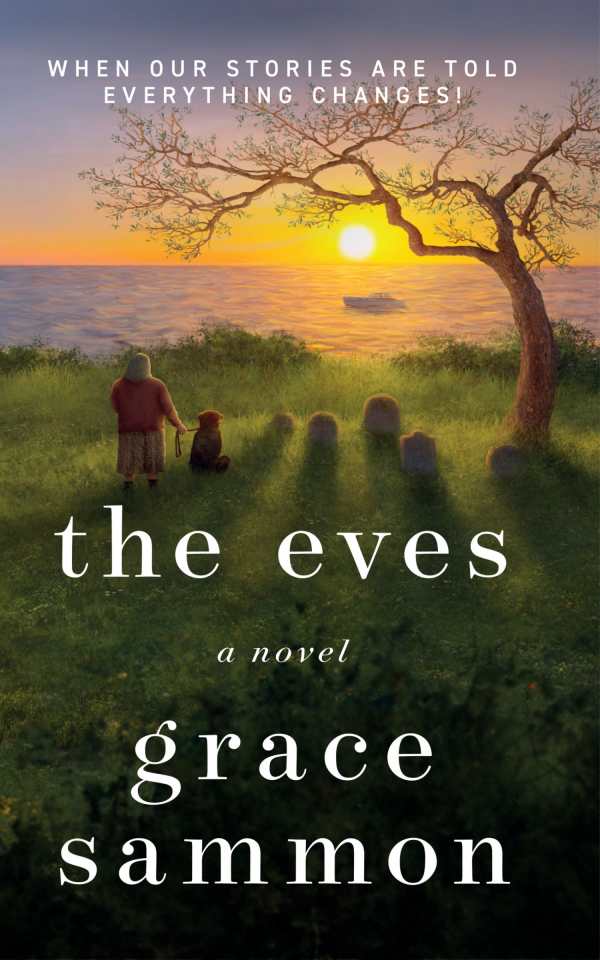The Eves
Heartfelt personal discoveries are made, and rich friendships formed, in the warm novel The Eves.
In Grace Sammon’s redemptive novel, The Eves, a woman’s private estrangements threaten to engulf her—until she finds a healing community among other women.
Nearing sixty, Jessica is an isolated teacher living in a historic home that’s being renovated. Grieved by the loss of contact with her adult children, she’s turned to vodka. Her forthright friend urges her to join a community college excursion to The Grange, a farm that was once owned by freed slaves and was later shepherded into a sustainable living community for the elderly. When Jessica approaches The Grange’s leader about how to become more involved, he encourages her to “go with the flow.” Jessica is soon buoyed by the prospect of gathering an oral history from the residents, even while hiding the rift within her own family.
The book’s early sections meander, filled with organizational details as Jessica defines her project. Conversations fill in the background: they include fragments from Maryland’s Black history, and cover The Grange’s connection with Jessica’s college. Emails outline a loose set of interview questions. Amid these plans, ongoing home projects unearth Jessica’s own past. Implied, compelling parallels form from it; these concern remaking spaces while preserving their essence.
The Grange itself is a fascinating site, and its layout, and ecoconscious construction, are covered; it comes to seem an enticing alternative to residential care, both visionary and practical. Warm bonds between its residents are shared in lucid terms, though as individuals, they are seen most through their short monologues, which come in response to Jessica’s prompting. As such, the residents’ lives are distilled into a handful of spoken memories, with their subtleties less apparent.
Several chapters concern themselves with imparting familiar lessons, such as to learn to be decisive and to be understanding of others, each emphasizing the notion that Jessica is herself growing because of the wisdom of the older people whom she interviews. The residents’ regrets, gratitude, and complicated parent-child relationships are recurrent points of emphasis, while Jessica’s absorption and implementation of their lessons into her own perspective is more gradual.
In between Jessica’s visits to The Grange, she takes a trip alone to Africa. This journey alters the momentum of the text and is disconnected from its overarching narrative. Jessica’s romance with her contractor is a sweeter addition to the tale; it reinforces the notion that surprises can still happen later in one’s life. Jessica’s strained relationship with her children, and a secret from her past, are present throughout the book, but these story lines stall by the book’s end. A jarring tragedy arises late in the book, interrupting its narration and preventing the otherwise immersive story from resolving in a natural way.
Heartfelt personal discoveries are made, and rich friendships formed, in the warm novel The Eves.
Reviewed by
Karen Rigby
Disclosure: This article is not an endorsement, but a review. The publisher of this book provided free copies of the book and paid a small fee to have their book reviewed by a professional reviewer. Foreword Reviews and Clarion Reviews make no guarantee that the publisher will receive a positive review. Foreword Magazine, Inc. is disclosing this in accordance with the Federal Trade Commission’s 16 CFR, Part 255.

